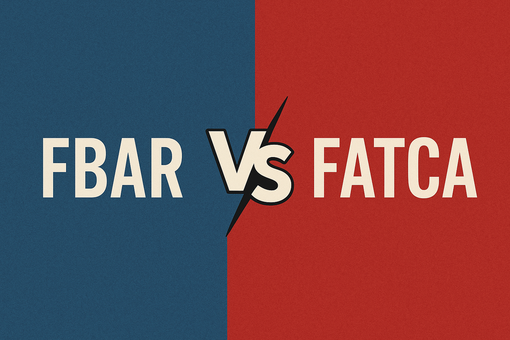Simple Tax Guide for Americans in Russia

US Expat Taxes - Russia
At Taxes for Expats we have been preparing U.S. tax returns for U.S. Citizens and green card holders working in Russia for over 6 years. We have been checked by the State Department and are listed on the list of approved Tax Preparers by the US Consulate in Moscow. Our clients hail from all parts of this big country - Moscow and St.Petersburg, Novosibirsk and Yekaterinburg, Surgut and Sahalin.
As a U.S. Citizen or green card holder you are legally required to file a U.S. tax return each year regardless of whether you already pay taxes in your residence country.
We offer professional tax services. That means we figure out the best and most optimal way to file your U.S. tax return and avail you of all possible exclusions and deductions. But just as importantly - avoid the errors that would allow IRS to disallow your return and levy fines & penalties on top. You can also do them yourself - not that we recommend it. For more information please see IRS.
The expatriate Foreign Earned Income Exclusion can only be claimed if you file your tax return on a timely basis. It is not automatic if you fail to file and can even be lost.
We have many clients living in Russia and know how to integrate your U.S. taxes into the local income taxes you pay. Any Russian income tax you already pay can be claimed as against the tax liability on your U.S. return on the same income.
As an expat living abroad you get an automatic extension to file until June 15th following the calendar year end. (You cannot file using the calendar year as is standard in Russia for U.S. tax purposes). You must, however, pay any tax that may be due by April 15th in order to avoid penalties and interest. You can get an extension to file (if you request it) until October 15th.
There are other forms which must be filed if you have foreign bank or financial accounts; foreign investment company; or own 10% or more of a foreign corporation or foreign partnership. If you do not file these form or file them late, the IRS can impose penalties of $10,000 or more per form. These penalties are due regardless of whether you owe income taxes or not.
We have helped hundreds of expats around the world catch up with their past U.S. taxes because they have failed to file U.S. tax returns for many years. This is, in fact, our specialty and we offer a 10% discount to clients to wish to file multiple tax returns at once and get in full compliance with the IRS.
Work with a recognized expert to help you prepare your American tax return. We can also provide tax planning and advice with other expatriate tax; we look forward to working with you.
Below we include information on the Russian Tax System for the American Expatriates.
Russian personal income tax rate for residents is 13%. A special 35% tax rate is applied to some kinds of income, e.g. the cost of any prizes and wins, voluntary insurance proceeds, interest on certain bank deposits and deposits on foreign currency. A 9% rate is applied to income in the form of dividends received from shareholdings.
All personal income of non-residents, including dividends, is taxed at the rate of 30%.
Personal income tax is levied on resident and non-resident individuals, whether or not they are citizens of the Russian Federation. Individuals are considered to be resident if they spend more than 183 days in Russia in a calendar year. Residents are subject to income tax on their worldwide income and non-residents on their Russian-sourced income only.
INSURANCE CONTRIBUTIONS
Employers pay separate insurance contributions on the payroll cost of employing Russian employees.:
- pension contributions – 22 percent of an employee’s salary, up to a maximum of RUB 876,000, plus 10 percent of any excess salary above this;
- social insurance contributions – 2.9 percent of an employee’s salary, up to a maximum or RUB 755,000, or 1.8 percent for foreigners temporarily staying in Russia;
- medical insurance – 5.1–5.9 percent of salary.
In addition, mandatory accident insurance contributions are paid at rates ranging from 0.2–8.5 percent of an employee’s salary, depending on the level of assessed risk of the employee’s occupation. This is paid separately to the above social security contributions, and still administed by the social funds.
Basis – Russian residents are taxed on their worldwide income. Nonresidents are taxed on Russian-source income.
Residence – An individual is resident if he/she spends more than 183 days in Russia during the 12-month period that corresponds to the calendar year.
Tax Filing status – There is no joint filing or assessment for spouses.
Taxable income – Taxable income consists of any receipt, in cash or in kind, by an individual or that is subject to an individual's discretionary disposal, subject to certain exceptions. Profits derived from self employment are generally taxed in the same way as profits derived by companies.
Capital gains – Gains realised on the sale of shares and securities are subject to income tax. The sale of other types of property by a Russian resident is exempt after a holding period of 3 years.
Tax Deductions and tax allowances – Subject to certain restrictions, resident taxpayers may be able to claim deductions for pension, insurance, medical and educational costs, and a standard deduction applies to those with very low income. A 1-time deduction of RUB 2 million is granted on the acquisition of a residence, as well as for mortgage interest payments.
Other taxes on individuals:
Stamp duty – Stamp duty is levied but it is usually nominal.
Real property tax – Tax is imposed at rates up to 1.5% of the cadastral value per annum.
Capital acquisitions tax – No
Capital duty – No
Inheritance/estate tax – No
Net wealth/net worth tax – No
Social security – Only the self-employed must contribute to social security since contributions are otherwise borne by the employer.
Russia Tax year – Russia tax year is the calendar year
Tax Filing and payment of tax – Tax on employment income is withheld by the employer and remitted to the tax authorities. In certain cases, individuals should report their income by filing a tax return no later than 30 April following the year of assessment, with any tax outstanding due by 15 July. Foreign nationals leaving Russia must submit a departure tax return no later than 1 month before departure, and pay any tax due within 15 days of the filing date.
Penalties – Penalties apply for noncompliance. No extensions are available.
Russia Corporate Tax
The standard rate of company tax in Russia is currently 20% of which 2% is normally paid to the federal government and 18% to republican authorities. The tax rate for the share transferred to regional authorities may be as low as 13.5%. Foreign enterprises deriving income which is not connected with carrying out their business activities through a permanent establishment pay profit tax at the rate of 20% and 15% on dividends.
Russian tax law distinguishes between domestic and foreign enterprises. Domestic enterprises are those which are established under the laws of Russia and are taxed on their worldwide income. Foreign legal entities are subject to Russian profit tax on profits derived from business activities carried on through a permanent establishment in the Russian Federation.
Russia tax year is the calendar year. With the exception of foreign legal entities, enterprises are obliged to make monthly advance payments of their quarterly liabilities. Advance payments are due not later than the 28th day of the corresponding month. Domestic enterprises have the option to pay tax monthly based on their actual profits. Tax payments are due no later than the 28th day of the following month. Foreign enterprises carrying out their business activities through permanent establishments make quarterly advance payments.
In general, income tax returns must be filed no later than 28 March following the tax year. Under the current tax law, there are no special benefits provided for entities such as religious associations, state and municipal museums, libraries or specialized restoration.
CAPITAL GAINS TAX
Capital gains are treated as ordinary business income and are therefore subject to profits tax according to the general rule.
BRANCH PROFITS TAX
There is no special branch profits tax in Russia.
OTHER FEDERAL TAXES
A tax on transactions in securities applies to the nominal sum of the securities issued by a joint-stock company, except for the initial issue. The tax is paid by the issuer at a rate of 0.2% on the nominal sum of the issued securities (maximum RUR 100,000). Excise Duties are levied on some goods such as alcohol, beer, cigarettes, cars and petrol. A mineral resources recovery tax applies to the cost of minerals extracted by a taxpayer company.
Companies and individuals exercising water consumption for special purposes are subject to water tax. The tax rate is fixed and depends on the water body used.
SPECIAL SYSTEM OF TAXATION
Local authorities may determine an alternative income tax for certain small business activities such as personal services and retail sales. The tax is paid instead of profit tax, VAT (except on the import of the goods into the Russian Federation) and property tax. In this case, taxpayers calculate 'common tax' at the rate of 15% based on standard income and determined by the local legislative body.
In some cases, a simplified system of taxation may be applied as an alternative to common tax. Taxpayers whose income does not exceed RUR 15m after the end of the ninth month of the tax year (excluding VAT) have a right to use this system of taxation during the following year (except for banks, enterprises with affiliated branches etc.). These enterprises do not pay profit tax, VAT (except on the importation of the goods to the Russian Federation) and property tax. Only one tax is levied, as with 'common tax'. The tax payer can choose the taxable base for this tax - either gross income for the 6% rate or income minus expenses for the 15% tax rate.
LOCAL TAXES
Local authorities can define certain tax rules but cannot impose taxes not stipulated by the federal tax law. Land tax is payable at a rate of 0.3% on agricultural and residential land and 1.5% on other types of land. The taxable base is the value of land as stated in the state land register as at 1 January of the relevant tax year.
OTHER TAXES
Resident enterprises and foreign companies that own property within the territory of the Russian Federation are liable to property tax. The rate is set by the regional authorities but cannot exceed 2.2%. The taxable base is the average aggregate annual depreciated value of fixed assets on the balance sheet of the resident company or permanent establishment concerned. Foreign companies which do not have a permanent establishment in Russia and which own only movable property are not subject to Russian Property Tax.
The owners of transport facilities (cars, motorcycles, buses etc) pay transport tax. This tax is imposed by territorial divisions of the Russian Federation (republics, regions and provinces). The tax rate depends on the technical specification of the vehicles owned. Taxpayers must pay the tax according to a contributory scheme determined by legislative bodies of regions of the Russian Federation. Companies operating gambling establishments are subject to a tax on the gambling industry. The tax rates are fixed and are not related to profit.
DETERMINATION OF TAXABLE INCOME
Taxable profits are calculated by ascertaining assessable income and then deducting all allowable expenses. In general, companies may deduct all necessary expenses paid or accrued during the year in the course of a business.
DEPRECIATION
Only the straight-line method may be used to calculate depreciation of certain groups of fixed assets such as buildings, construction and transfer mechanisms. Depreciation of other fixed assets should be calculated by a taxpayer using either the straightline method or the accelerated method, depending on which method they prefer. Depreciation is calculated on a monthly basis and must be taken whether or not the company makes profits in the period.
STOCK/INVENTORY
Under accounting law, stock is valued at its purchase cost. The profits tax law contains no provision concerning valuation of stock. The cost of materials transferred to production may be determined by the following valuation methods: average cost, cost of item, FIFO or LIFO.
CAPITAL GAINS AND LOSSES
As discussed above, capital gains and losses are subject to profit tax at regular corporate rates.
DIVIDENDS
Dividends paid by Russian companies are subject to a final withholding tax whether they are paid to resident or non-resident recipients. Dividends received by resident companies are subject to a 0% withholding tax rate if:
- - the recipient holds at least 50% of the capital of the payer and
- - the shares are worth at least RUR 500m and
- - the participation has been held continuously for the past year
This tax rate is 15% if paid to a non-resident company or individual and 9% if paid to a resident company or individual.
INTEREST DEDUCTIONS
Thin capitalisation rules apply where interest is paid to a foreign enterprise that holds more than 20% of the share capital of a Russian entity. If the debt exceeds equity by more than 3:1 (for bank companies – more than 12.5:1), the amount of interest deductible by the Russian entity is restricted. The difference between the real amount of interest and that calculated under Russian Tax legislation is treated as a dividend paid out by the Russian entity to its foreign shareholder and is subject to 15% withholding tax base.
LOSSES
Current trading losses may be used to offset profits for the same tax year. Losses may be carried forward for ten years. With effect from 1 January 2007, losses may be carried to the following tax period without any restrictions relating to the tax.
FOREIGN SOURCED INCOME
Foreign sourced income and gains are subject to profit tax at the regular rate.
FOREIGN TAX RELIEF
The Russian tax law provides a tax credit for foreign taxes paid on foreign sourced profits or revenues subject to a limit which is equal to the maximum amount of Russian tax due on the same profits or revenues. Any excess foreign tax credits may not be transferred to future or previous periods. No credit is granted for underlying corporate income tax on dividends.
CORPORATE GROUPS
The concept of fiscal unity does not exist in Russian law and there is no provision for combining the profits or losses of one enterprise with those of another in the same group.
WITHHOLDING TAXES
Foreign legal entities obtaining profits in connection with activities within Russia may be subject to withholding taxes on dividends, interest and royalties. Domestic and treaty rates are set out in Section I below.
EXCHANGE CONTROL
Generally, hard currency transactions between Russian residents and non-residents are executed without any limitation. However, certain transactions are subject to state regulations and restrictions.
Hard currency transactions between residents are forbidden with certain exceptions. Hard currency transactions between non-residents may be carried out without limitations.
Russia vat (Value Added Tax) rates
The standard rate of VAT in Russia is 20%. Some supplies of basic foodstuffs and children's clothing and footwear are taxed at a reduced rate of 10%. Some imported medicines, medical equipment and scientific research are exempt from VAT. Other exemptions include cultural and educational services, as well as services rendered by lawyers. The tax period for VAT is per quarter.
Enterprise sales and foreign service providers of e-services have a VAT rate of 16.67% .
VAT is levied on the sale of goods and services in Russia and the import of goods into the Russian Federation. The taxable base is the sales price.
A foreign legal entity carrying out its business activity through several branches located within the territory of the Russian Federation can independently choose one branch through which VAT on the sales and services of all branches should be paid.
VAT Registration – The registration threshold for VAT purposes is RUB 2 million. A foreign entity cannot register for VAT only.
Filing and VAT payment – A quarterly schedule applies on an accruals basis only.
Russian Tax Questions?
Navigating Russian Taxes as a US Expat? Our American tax services are here to help. Need a free tax consultation?
Contact us for expert advice.



